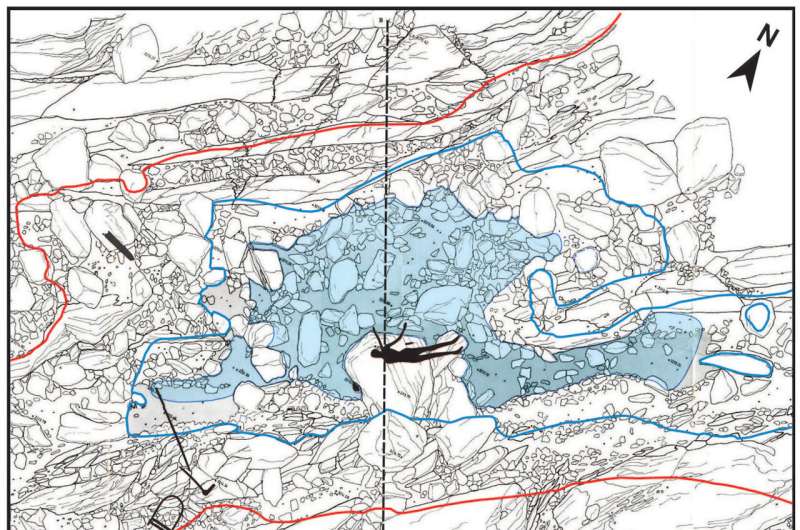#New study of Ötzi the Iceman suggests his preservation story was not a series of miracles

Table of Contents
“New study of Ötzi the Iceman suggests his preservation story was not a series of miracles”

A small team of researchers affiliated with institutions in Norway, Sweden and Austria, has found evidence that suggests a flaw in the original story of how Ötzi (the Iceman) remained preserved for so long. In their paper published in the journal The Holocene, the group details what they describe as a more plausible explanation.
In 1991, a couple of German hikers came upon the remains of a man frozen in the ice in the Ötztal Alps. Testing of the remains showed the man to be from approximately 5,300 years ago. Researchers also found wounds that suggested the man had been killed. Konrad Spindler, an Austrian archaeologist, published a theory to explain how Ötzi’s remains had managed to survive for so long.
He suggested the body had freeze dried and was then encased in ice beneath a glacier (and was protected from its movement by a gully), where he was preserved in cold storage for thousands of years. His remains were found only because of warming caused by climate change melting the ice in which he had been frozen. Such a sequence of events meant that Ötzi’s experience was unique, and thus it was doubtful that others like him would ever be found.
In this new effort, the researchers disagree with almost every part of Spindler’s theory. The only part they believe to be true is the cause of death. They suggest instead that food in Ötzi’s belly demonstrates that he died in the spring, not the fall. Also, study of the landscape showed that the remains had not been covered by a glacier, which suggests Ötzi had melted out of the ice many times; thus, there was no time capsule. There was also evidence that Ötzi had been immersed in water several times.
And that, the researchers suggest, indicates that Ötzi’s weapons and tools had been damaged by the elements, not by a struggle with an unknown foe. And finally, the researchers also found evidence suggesting that Ötzi had not died where he was found in the gully—instead, he had been transported down the mountain by natural environmental processes.
The researchers conclude that since their evidence shows that Ötzi’s remains had survived for so long due to common conditions, it is likely that others like him will be found as conditions in the area continue to grow warmer.
Lars Pilø et al, Ötzi, 30 years on: A reappraisal of the depositional and post-depositional history of the find, The Holocene (2022). DOI: 10.1177/09596836221126133
© 2022 Science X Network
Citation:
New study of Ötzi the Iceman suggests his preservation story was not a series of miracles (2022, November 9)
retrieved 9 November 2022
from https://phys.org/news/2022-11-tzi-iceman-story-series-miracles.html
This document is subject to copyright. Apart from any fair dealing for the purpose of private study or research, no
part may be reproduced without the written permission. The content is provided for information purposes only.
If you liked the article, do not forget to share it with your friends. Follow us on Google News too, click on the star and choose us from your favorites.
For forums sites go to Forum.BuradaBiliyorum.Com
If you want to read more Like this articles, you can visit our Science category.




